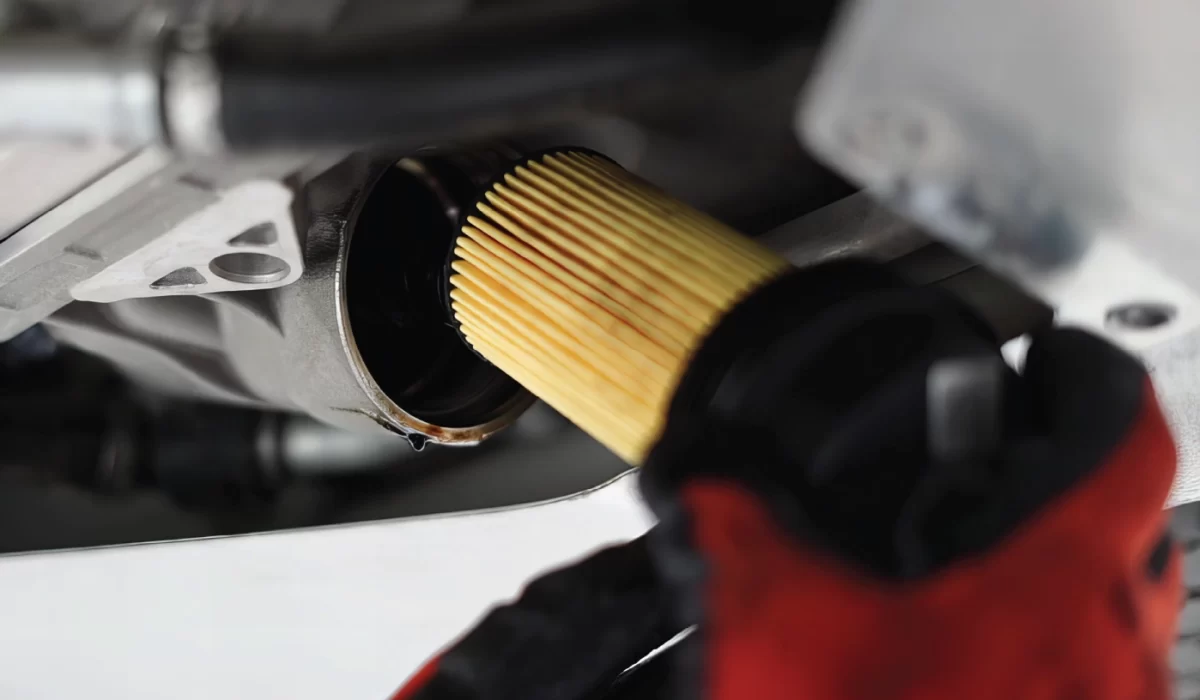- Regular Oil Changes
Oil is the lifeblood of your engine, lubricating moving parts and reducing wear. Regular oil changes prevent sludge buildup and ensure optimal engine performance. Check your owner’s manual for the recommended oil change interval, typically every 3,000 to 5,000 miles.
- Inspect and Replace Air Filters
A clean air filter ensures that your engine receives the right amount of air for combustion. Over time, filters can become clogged with dirt and debris, reducing fuel efficiency and performance. Replace your air filter every 12,000 to 15,000 miles or as recommended by your vehicle manufacturer.
- Monitor Tire Pressure and Tread
Properly inflated tires improve fuel efficiency, handling, and safety. Check tire pressure monthly and keep it at the recommended level. Additionally, inspect tire tread for uneven wear and rotate your tires every 6,000 to 8,000 miles to ensure even wear and extend tire life.
- Check Fluid Levels
Your car relies on various fluids to operate smoothly. Regularly check and top off:
- Engine Oil: Essential for lubrication and cooling.
- Coolant: Prevents overheating and protects the engine.
- Brake Fluid: Ensures responsive braking.
- Transmission Fluid: Maintains smooth gear shifts.
- Power Steering Fluid: Provides easy steering.
Low or dirty fluids can lead to severe engine damage or mechanical failure.
- Replace Worn Brake Pads
Brakes are critical for your safety. Listen for squeaking or grinding noises, which indicate worn brake pads. Replacing them promptly prevents damage to rotors and ensures effective braking. Have your brakes inspected at least once a year.
- Test Your Battery
A dead battery can leave you stranded. Test your battery’s charge and inspect for corrosion around the terminals. Most batteries last 3 to 5 years, so consider replacing an older battery to avoid unexpected failures.
- Inspect Belts and Hoses
Belts and hoses play vital roles in your engine’s operation. Look for cracks, fraying, or signs of wear. Replacing worn belts and hoses prevents breakdowns and costly repairs. Common belts to check include the serpentine belt and timing belt.
- Keep Your Car Clean
Regular washing and waxing protect your car’s paint and prevent rust. Clean the interior to remove dirt, debris, and spills that can cause wear and tear. A well-maintained exterior and interior not only look great but also help preserve your car’s value.
- Follow the Manufacturer’s Maintenance Schedule
Your vehicle’s manufacturer provides a maintenance schedule tailored to your car’s needs. Following this schedule ensures timely service and helps catch potential issues before they become major problems. Refer to your owner’s manual for specific guidelines.
- Listen to Your Car
Unusual noises, vibrations, or changes in performance can indicate underlying problems. Pay attention to these signs and address them promptly to prevent further damage.
Conclusion
Preventative maintenance is key to keeping your car in top condition and avoiding unexpected breakdowns. At Universal Auto Garage, our experienced technicians are here to help with all your maintenance needs. Whether it’s a routine oil change, tire rotation, or comprehensive inspection, we’ve got you covered. Schedule your appointment today and keep your car running smoothly for years to come.
Need expert maintenance service? Contact Universal Auto Garage today!
GET IN TOUCH
Experiencing car troubles? Don’t worry—our team is here to assist you. Feel free to reach out to us for expert assistance!

